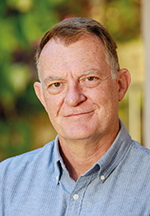

Recently, Statistics South Africa reported that, in the first quarter of 2024, 35% of youth between the ages of 15 to 24 were not involved in either education, training, or employment. This amounts to a worryingly large number totalling 3,6 million, and highlights the urgent need for more companies to invest in education and training.
Educational institutions, both at school and tertiary level, and government initiatives, play a crucial role in nurturing young engineering talent. Programmes aimed at promoting STEM education, such as science and engineering competitions, mentorship programmes, and scholarships, encourage students to pursue careers in engineering from an early age. These students would hopefully go on to study science and engineering [I use ‘and’ instead of ‘or’ as the two fields are mutual] and move into the workforce as a useful graduate.
This, however, is not reality. Although there are many entrants into the engineering faculties at tertiary institutions, many of them are ill-prepared for the rigour that engineering studies demand, which results in a huge dropout rate. In fact, the throughput rate for a three-year electronic engineering degree is sitting at around 18%. This statistic is shocking. With only 18 out of every 100 entrants graduating, it is no wonder that the engineering sector is crying out for talent.
The high dropout rate can be attributed to a few factors, but I believe that the following two are foremost:
Firstly, the lack of preparedness of entrants for the demands of engineering studies. This, however, can be addressed at school level by the introduction of more STEM subjects into the syllabus. Recently, the SA government gazetted the new Robotics and Coding course for grades 1 to 9, a good step in the right direction.
Secondly, the lack of mentorship once students enter tertiary education. Not being prepared and then still not having an ‘engineering’ experience causes many students to fail, as a love of engineering is not being fostered. Most institutions are measured by their research output at postgraduate level, leaving the undergraduate courses high and dry in terms of resources. The large class sizes at tertiary level are not conducive to holding practical sessions. This is where I believe local companies can get involved. Set up mentorship programmes or holiday ‘camps’ for students where these students can get hands-on experience with real-world engineering. This will go a long way to nurturing the excitement that a career in engineering affords.
So, what is the solution?
The government must relinquish its absurd hold on the entrance numbers to tertiary training institutions. Entrants into engineering fields must be chosen on merit after a suitable aptitude test has been written. This will go a long way towards ensuring that ‘correct’ candidates are being chosen to study in these fields.
Secondly, the government bursary scheme, NSFAS, needs a complete overhaul, with progression rules being tighter. The scheme should also be open to all students. Here’s how I propose it could work:
Every student entering an engineering faculty registers for a certain number of subjects. If a subject is passed, the bursary scheme then pays for that subject. On completion of the qualification, every student is required to pay a small percentage of their salary back to the scheme for two years, once employed. This will allow any such bursary scheme to be reimbursed, and hopefully become self-sustaining, without needing a bottomless pit of money from the current taxpaying pool.
The various engineering fields are one of the few sectors that have the potential to drive economic growth and address critical societal issues. With the country’s ongoing efforts to modernise infrastructure, expand renewable energy sources, and enhance technological innovation, there is a high demand for skilled engineers who can contribute to these developments. This demand not only promises job opportunities, but also underscores the importance of engineering in fostering sustainable development and improving quality of life.
Let’s hope that our new government of national unity can work together in the right direction for our youth. Combined with the country’s engineering sector, I believe that the current problems can be addressed and overcome.
| Tel: | +27 11 543 5800 |
| Email: | [email protected] |
| www: | www.technews.co.za |
| Articles: | More information and articles about Technews Publishing |

© Technews Publishing (Pty) Ltd | All Rights Reserved